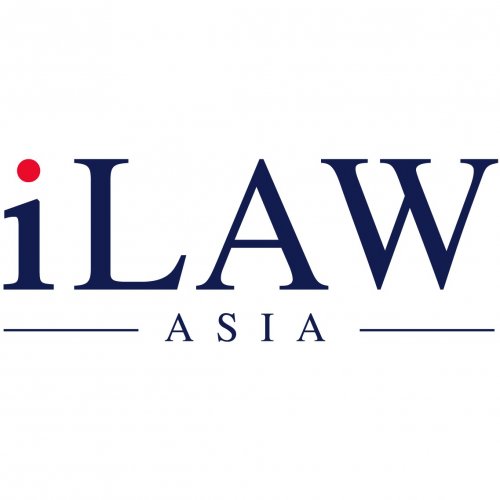Best Antitrust Litigation Lawyers in Yangon
Share your needs with us, get contacted by law firms.
Free. Takes 2 min.
List of the best lawyers in Yangon, Myanmar
About Antitrust Litigation Law in Yangon, Myanmar
Antitrust litigation in Yangon, Myanmar refers to legal actions involving the enforcement and interpretation of laws that promote fair competition in the market. The primary aim of these laws is to prevent anti-competitive practices such as monopolies, cartels, abuse of market dominance, and other unfair trade practices that can harm consumers and other businesses. As Myanmar continues to develop its economy and integrate with international markets, the significance of antitrust laws and litigation in Yangon is steadily growing. Understanding your rights and obligations under these laws is essential for businesses, consumers, and legal professionals operating in Yangon.
Why You May Need a Lawyer
Antitrust litigation can be complex and intimidating. There are several situations in which seeking legal help would be crucial, including:
- If your business is accused of engaging in anti-competitive practices such as price-fixing, market allocation, or exclusive dealing arrangements.
- If you suspect that a competitor or a dominant player is using unfair methods to limit your ability to compete in the market.
- If you are involved in a merger or acquisition that may lead to concerns about market concentration and reduced competition.
- If you are facing an investigation or enforcement action from local authorities regarding possible violations of competition law.
- If you are a consumer or small business negatively impacted by monopolistic or anti-competitive behaviors and wish to seek remedies.
A qualified antitrust lawyer can provide legal advice, represent your interests in court, navigate regulatory processes, and help ensure compliance with Myanmar's evolving competition laws.
Local Laws Overview
In Myanmar, the main legislation governing competition and antitrust issues is the Competition Law, enacted in 2015 and enforced from 2017. The law aims to curb monopolistic practices, ensure fair trading, and establish a level playing field for all market participants. Key aspects of Myanmar's antitrust law relevant to litigants in Yangon include:
- Prohibition of Anti-Competitive Agreements: Agreements between businesses that restrict competition, such as price-fixing, market sharing, or collusion, are prohibited under Myanmar Competition Law.
- Abuse of Dominant Position: Companies with a dominant market position are not allowed to exploit their power to the detriment of competitors or consumers, such as through predatory pricing or exclusive supply agreements.
- Mergers and Acquisitions Oversight: Certain mergers and acquisitions may require notification and approval from the Myanmar Competition Commission to prevent excessive market concentration.
- Investigation and Enforcement: The Myanmar Competition Commission (MCC) is the governmental body responsible for investigating potential violations and enforcing the law, including imposing penalties and corrective measures.
- Dispute Resolution: Litigants can bring complaints to the MCC or pursue cases in Myanmar’s judicial system, depending on the nature and severity of the alleged violations.
It is important to note that Myanmar’s competition law framework is relatively new and continually evolving, so consulting with a legal professional who stays current with recent regulatory developments is highly recommended.
Frequently Asked Questions
What is considered anti-competitive behavior under Myanmar law?
Anti-competitive behavior includes price-fixing, collusive agreements, bid-rigging, abusing a dominant market position, and other practices that unfairly limit competition or harm consumers.
Who enforces antitrust laws in Myanmar?
The Myanmar Competition Commission (MCC) is responsible for the enforcement of antitrust regulations, including conducting investigations and imposing penalties for violations.
What penalties can result from violating antitrust laws?
Penalties can include fines, orders to cease anti-competitive activities, compensation to affected parties, and in some cases criminal charges for severe violations.
Can consumers file complaints against businesses engaging in anti-competitive practices?
Yes, both consumers and businesses can file complaints directly with the Myanmar Competition Commission if they believe that anti-competitive practices are taking place.
What constitutes a dominant market position?
A dominant market position refers to a business's ability to operate independently of competitive pressures due to a significant market share or other economic advantages. The MCC assesses this on a case-by-case basis.
Are all mergers and acquisitions subject to review by authorities?
Not all, but certain mergers and acquisitions, especially those that might reduce competition or create a monopoly, require notification and, if necessary, approval from the MCC.
How does the complaint and investigation process work?
Complaints can be submitted to the MCC, which then conducts a preliminary review followed by a formal investigation. The parties involved may be asked to submit evidence, attend hearings, and respond to inquiries.
What actions can the court take in antitrust litigation cases?
The court can issue injunctions to stop anti-competitive conduct, order payment of damages, or impose penalties in accordance with Myanmar Competition Law.
How can a business ensure compliance with antitrust laws?
Businesses should regularly review their contracts and market practices, provide staff with compliance training, and consult with legal professionals to align their activities with competition law.
Is there an appeals process if I disagree with the MCC's decision?
Yes, decisions made by the Myanmar Competition Commission can be appealed to the relevant court in accordance with the rules and procedures established under Myanmar law.
Additional Resources
Several resources are available in Yangon and Myanmar for those seeking information or assistance related to antitrust and competition law:
- Myanmar Competition Commission (MCC): The key regulatory authority handling enforcement, investigations, and educational campaigns regarding the Competition Law.
- Ministry of Commerce: Provides guidance on trade and competition policy, and may issue updates on regulatory changes.
- Myanmar Bar Association: Offers access to licensed legal practitioners who specialize in commercial and competition law matters.
- Myanmar Consumers Union: Advocates for consumer rights and can provide support to individuals affected by anti-competitive practices.
- Law firms in Yangon: Many local and international firms have expertise in competition law and antitrust litigation and offer consultations for affected businesses and individuals.
Next Steps
If you believe you are involved in or affected by a possible antitrust violation in Yangon, Myanmar, taking the following steps can help ensure your rights are protected:
- Gather relevant documents and evidence, such as contracts, communications, or descriptions of the alleged conduct.
- Consult with a qualified lawyer who understands Myanmar's competition laws and has experience in antitrust litigation.
- If you are a business, consider implementing compliance training and a review of your current practices to prevent future issues.
- File a formal complaint with the Myanmar Competition Commission if necessary, or pursue a legal claim in court as advised by your lawyer.
- Stay informed about changes in local laws and enforcement practices by following updates from the MCC and seeking regular legal advice.
Antitrust litigation is a specialized field that often requires professional assistance. Taking prompt and informed action can help you navigate the legal process successfully and protect your interests in Yangon, Myanmar.
Lawzana helps you find the best lawyers and law firms in Yangon through a curated and pre-screened list of qualified legal professionals. Our platform offers rankings and detailed profiles of attorneys and law firms, allowing you to compare based on practice areas, including Antitrust Litigation, experience, and client feedback.
Each profile includes a description of the firm's areas of practice, client reviews, team members and partners, year of establishment, spoken languages, office locations, contact information, social media presence, and any published articles or resources. Most firms on our platform speak English and are experienced in both local and international legal matters.
Get a quote from top-rated law firms in Yangon, Myanmar — quickly, securely, and without unnecessary hassle.
Disclaimer:
The information provided on this page is for general informational purposes only and does not constitute legal advice. While we strive to ensure the accuracy and relevance of the content, legal information may change over time, and interpretations of the law can vary. You should always consult with a qualified legal professional for advice specific to your situation.
We disclaim all liability for actions taken or not taken based on the content of this page. If you believe any information is incorrect or outdated, please contact us, and we will review and update it where appropriate.










